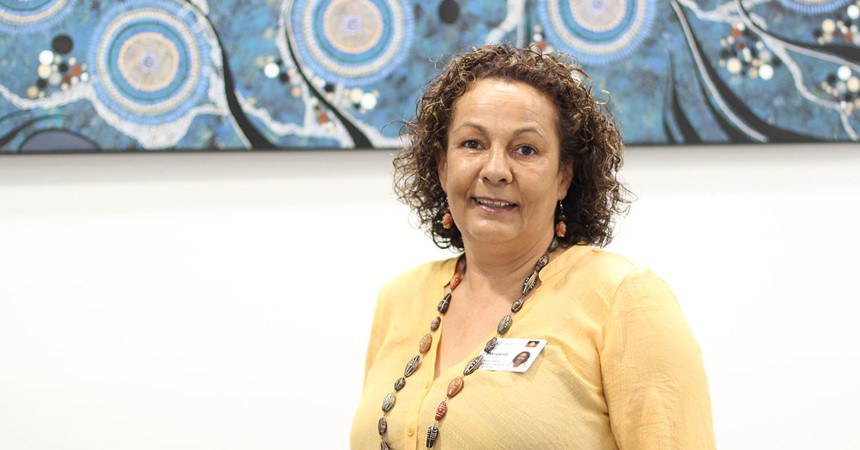More than simply cultural awareness, cultural safety takes a holistic approach to providing a safe healthcare environment and has regard for the physical, mental, social, spiritual and cultural needs of the patient and the community.
Cultural safety is a prerequisite of improving health outcomes for Aboriginal people, says Calvary Mater Newcastle’s director of mission, Mary Ringstad.
“We conducted a major cultural safety audit a few years ago and have been working to a plan ever since,” says Ms Ringstad.
“From the audit, we found there was a perception of Calvary Mater Newcastle as ‘white, private and Catholic’. So there were significant concerns that we needed to understand and address.
“We are working to change those perceptions so that Aboriginal people who need our services feel safe to access them and feel comfortable and safe in our care.”
Employing an Aboriginal health liaison officer to support Aboriginal patients and families has been a critical outcome from the audit.
Margaret Whitson, a proud Kamilaroi woman, has been in the role for 18 months, providing advocacy, education, emotional, practical, social and welfare support, as well as ensuring referrals and links are made to appropriate community support programs and services.
Ms Whitson works with non-Aboriginal staff to enhance their understanding, including orientation sessions for new clinical and non-clinical staff; and to support Aboriginal staff through yarn-ups and other initiatives.
Expanding Aboriginal representation on the hospital’s Community Advisory Council has been another step forward, and one that will help guide further change.
The chief executive of the Awabakal Aboriginal Lands Council, Robert Russell, and his counterpart at the Worimi Aboriginal Lands Council, Andrew Smith, joined the council this year, and are also part of the hospital’s Closing the Gap Collaborative Committee.
Aboriginal artworks throughout the hospital provide visual cues and an inclusive and welcoming environment.
The hospital has hosted education days for Aboriginal health workers in primary healthcare organisations and is involved in developing Aboriginal health resources and initiatives (such as the Into the Dreaming resource for people receiving palliative care, and their families).
It is also an active participant in NAIDOC and other community initiatives.
“We take every opportunity we can to partner with the community in the hope of building relationships and making changes and improvements that will help make a difference,” says Ms Ringstad.
And those other misperceptions?
Although owned by not-for-profit national care provider Calvary, Calvary Mater Newcastle provides public health services under an arrangement with Hunter New England Health Local Health District and NSW Health. As well as being the district’s major cancer care hospital, it provides a wide range of public services from emergency and intensive care to surgery and general medical services.
It is the district hospital for a large part of Newcastle and up to Port Stephens.
“We found our Catholic heritage is a comfort for some,” says Ms Ringstad. “For others however, it remains an institutional barrier. There is more for us to do.”



























































































